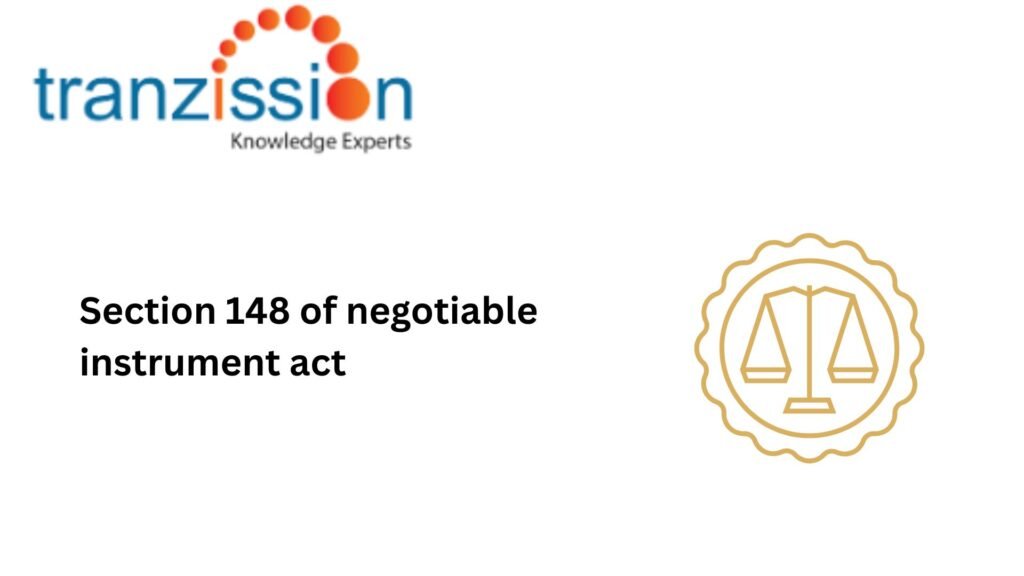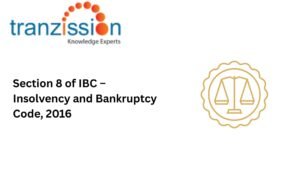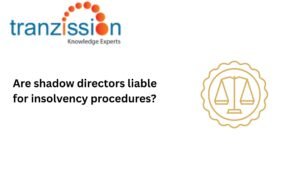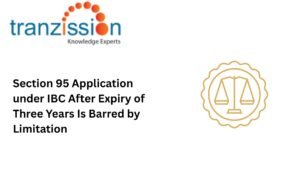
Section 148 of negotiable instrument act

Table of Contents
Section 148 of negotiable instrument act, of 1881 (NI Act) addresses the situation where someone appeals a conviction under section 138:
Overview of Section 148:
Section 148 of negotiable instrument act was introduced through the Negotiable Instruments (Amendment) Act, 2018 and empowers the Appellate Court to direct the convicted person to deposit up to 20% of the fine or compensation awarded by the trial court in a cheque dishonor case while the appeal is pending. This section aims to prevent misuse of the appellate process and delay tactics used by defaulters.
Key Features of Section 148:
Section 148 of negotiable instrument act applies only in cases where conviction under Section 138, or in cheque dishonour cases, is challenged in an appeal. The deposits ordered by the Appellate Court can be adjusted against the final compensation amount. Further, if the appeal is dismissed, the complainant is entitled to withdraw the deposited amount.
Suggested Reading : CIRP Regulation 39D of IBBI Regulations, 201
Legal Framework Governing Section 148
The laws governing the sSection 148 of negotiable instrument act can be summarised below:
Relationship Between Section 138 & Section 148:
Section 138 of the NI Act deals with dishonor of cheques due to sufficient funds. An appeal in section 148 ensures that complainants receive some relief while the appeal process is ongoing.
Supreme Court & High Court Interpretations:
Judicial precedents affirm that Section 148 applies retrospectively to pending cases. The Hon’ble Supreme Court in Rakesh Ranjan Shrivastava v. The State of Jharkhand & Anr, empowers the appellate court to order the appellant (drawer) to deposit a minimum of 20% of the fine or compensation awarded by the trial court in appeals against conviction under section 138. Courts have also emphasized that the provision aims to prevent undue delays and safeguard the complainant’s rights.
Impact on Business Transactions & Financial Credibility:
This section strengthens confidence in cheque-based transactions by ensuring quicker recovery for dishonored cheques. It also acts as a deterrent against fraudulent financial practices and delays in litigation.
Challenges & Controversies Surrounding Section 148
Section 148 of the NI Act presents challenges due to the potential for undue hardship and the need for a nuanced approach to ensure justice, particularly in exceptional circumstances, and the right to appeal.
The burden on the Accused in Genuine Cases:
Many critics argue that the requirement of an upfront deposit may be unfair to accused individuals with valid defenses. Thereby, reducing the confidence in the process, essentially diminishing the purpose of this section.
Retrospective Application Debate:
Some legal experts question whether Section 148 of negotiable instrument act should apply retroactively to cases initiated before its enforcement on Sept. 1, 2018, especially concerning appeals against conviction under Section 138 NI Act.
Discretion of the Appellate Court:
This section gives courts discretion in ordering the deposit. The discretionary nature and the potential for exceptions can lead to inconsistencies in rulings across different courts, creating legal ambiguities.
Best Practices for Compliance with Section 148
Businesses have the primary responsibility to ensure legal compliance with the NI Act. They need to strengthen their financial due diligence by ensuring proper documentation before accepting cheques as payment. Legal advisors also have a role in the application of Section 148 by guiding clients on appeal strategies. They should provide proper legal advice that can help navigate the challenges of compliance with Section 148. Courts should ensure fair application of section 148, and balancing complainant rights and accused protection is key to fair implementation.
The Future of Section 148 in Negotiable Instruments Law
To reduce the legal ambiguities that arise due to the discretionary nature of the courts, lawmakers need to introduce further clarifications on its retrospective applicability. It is crucial to implement alternative dispute resolution for cheque dishonor cases. Lawmakers need to encourage mediation and arbitration to reduce litigation backlog. Further, using digital digital tracking systems can help prevent fraudulent cheque transactions.
Conclusion : Section 148 of negotiable instrument act
The purpose of section 148 is to ensure that the complainant receives some relief even during the pendency of the appeal. This section is crucial in ensuring justice in cheque dishonor cases, expediting the process, and preventing delays caused by appeals. By requiring a deposit of a portion of the fine or compensation, the provision aims to discourage appellants from filing appeals merely to delay the proceedings. However, it also discourages individuals who have genuine interests.





